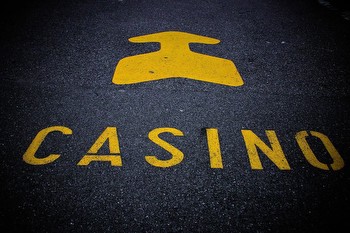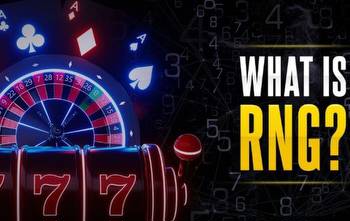Ensuring fair gameplay in online casinos: The top seven measures to look out for

The online gambling industry has recorded remarkable growth in recent years thanks to the flexibility online casinos offer. Today, players can visit their favourite sites and access a vast array of games from the comfort of their homes. These platforms also offer competitive bonuses and promos, which you may not find at land-based gambling establishments.
However, with this convenience come concerns surrounding fairness in in-game outcomes, RTP, transactions or bonuses. To address these fears and maintain trust and credibility, the best online casinos implement certain mechanisms to ensure fair play.
This article covers the top measures to look out for in online casinos to ensure safe and fair gameplay. Let’s dive right in!
RNGs are a no-brainer when it comes to evaluating the fairness of an online casino. These tools are in place to ensure that the outcome of a game of chance is really determined by chance and not manipulated.
As the name implies, RNGs generate unpredictable sequences of numbers that determine the outcome of games. For instance, the result of a spin of the slot machine or the roulette wheel must be independent and unbiased. This also applies to card shuffling in poker and other card games. Additionally, reputable online casinos often subject their RNGs to rigorous testing and certification by independent auditors. We’ll cover this in detail under the next point.
Overall, RNGs are the backbone of fair gaming in online casinos. They provide the necessary assurance that games are not rigged, promoting fair gameplay.
As mentioned earlier, reputable online casinos often undergo third-party authentications by independent organisations that assess the fairness and integrity of their operations. These auditors evaluate various core aspects of the casino, such as RNGs, payout percentages and security protocols. They ensure that games function exactly as advertised and that every player has a fair chance of winning.
Some notable auditors in the iGaming industry include eCOGRA, iTech Labs, and GLI (Gaming Laboratories International). Like Michelin Stars in restaurants, certificates from these organisations hold high value and are difficult to obtain and maintain. Therefore, they ensure fair and safe gameplay.
Provably fair is a relatively new technology often used in blockchain-based casinos. Unlike traditional systems, where players must trust the casino’s integrity, this innovative system allows you to verify the game outcomes independently. It uses cryptographic algorithms to generate the hashed (encrypted) version of a game’s results before it starts. After the game, players can compare the actual game results with the hash to verify that no tampering occurred.
Due to its cryptographic nature, the provably fair technology makes it nearly impossible to rig game outcomes, enhancing fairness and credibility in online gambling.
To ensure fairness, reputable casinos provide clear, accessible information about game rules, odds, and payout percentages. This transparency allows players to make informed decisions and understand what to expect from each game. For instance, the Return to Player (RTP) percentage indicates the average amount a player can win back on their wagers over a long period of betting. While unscrupulous casinos will hide such information to lure players, trustworthy platforms will display it prominently. You can here about games with the highest RTPs.
Online casinos should also be transparent about terms and conditions, including wagering requirements and bonus rules. This will help prevent misunderstandings and unfair practices.
Beyond game outcome and odds, fairness extends to the security of player data. As a result, reputable online casinos implement industry-standard security and encryption systems to safeguard players’ transactions and personal information.
One such system is the Secure Sockets Layer (SSL) encryption, which encrypts data transmitted between players and the casino. This technology ensures sensitive data like login credentials and payment details is only available to authorised personnel, preventing breaches and fraud. Players should also look out for robust security protocols, including firewalls and intrusion detection systems.
Licensing and regulation are among the most critical measures players can use to evaluate fairness in online casinos. All trustworthy casinos operate under valid licences issued by reputable regulatory authorities. These bodies ensure the casinos adhere to screenings and stringent standards for fair play, responsible gambling and player protection. If a gaming platform falls short of any of these standards, it loses its licence.
These authorities also conduct regular audits to ensure industry compliance. Their checks cut across verifying the integrity of Random Number Generators (RNGs), game fairness, and financial practices.
Some of the renowned regulatory bodies in iGaming include:
- United Kingdom Gambling Commission
- Gibraltar Regulatory Authority
- Malta Gaming Authority
- Curaçao Gambling License
- Kahnawake Gambling License,
- Division of Gaming Enforcement.
Fairness in online casinos also extends to responsible gaming. The best online casinos prioritise players’ wellbeing by helping them manage their gaming habits and actively protecting them from the harm of addiction. One of the key measures such platforms put in place is the self-exclusion option, where players can voluntarily ban themselves from playing for a specified period.
Other responsible gaming features on reputable casinos include:
- Deposit Limits
- Wagering Limits
- Loss Limits
- Reality Check Time Alerts
- Session Limits
- Help Resources.
With the sheer number of options in the online casino market, players must prioritise fairness when choosing where to play. Thankfully, the best casinos implement several mechanisms to ensure safe and fair gameplay. By looking out for the measures covered in this article, you can better safeguard yourself and make the most of your online gambling journey.
































